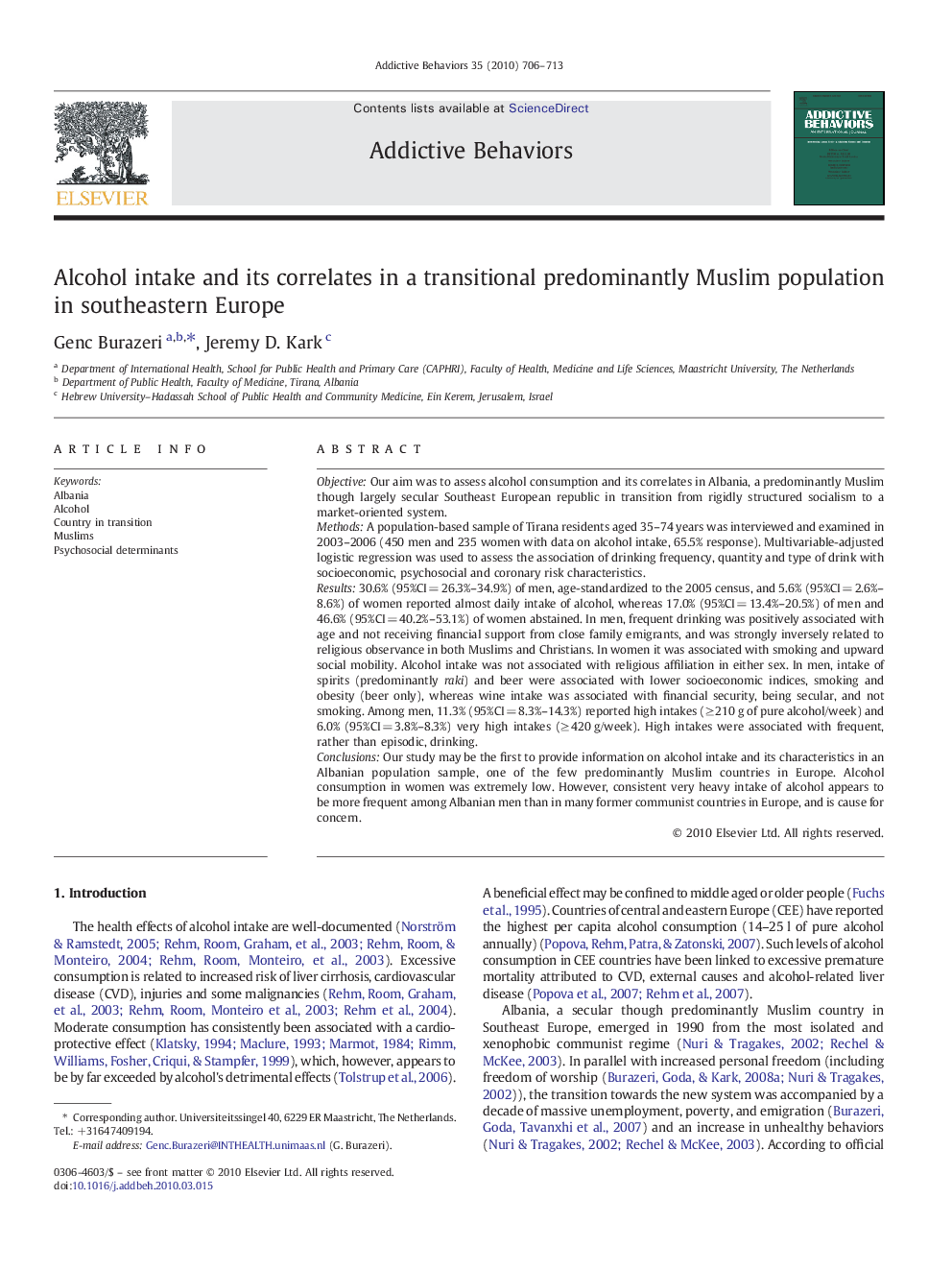| کد مقاله | کد نشریه | سال انتشار | مقاله انگلیسی | نسخه تمام متن |
|---|---|---|---|---|
| 900255 | 915426 | 2010 | 8 صفحه PDF | دانلود رایگان |

ObjectiveOur aim was to assess alcohol consumption and its correlates in Albania, a predominantly Muslim though largely secular Southeast European republic in transition from rigidly structured socialism to a market-oriented system.MethodsA population-based sample of Tirana residents aged 35–74 years was interviewed and examined in 2003–2006 (450 men and 235 women with data on alcohol intake, 65.5% response). Multivariable-adjusted logistic regression was used to assess the association of drinking frequency, quantity and type of drink with socioeconomic, psychosocial and coronary risk characteristics.Results30.6% (95%CI = 26.3%–34.9%) of men, age-standardized to the 2005 census, and 5.6% (95%CI = 2.6%–8.6%) of women reported almost daily intake of alcohol, whereas 17.0% (95%CI = 13.4%–20.5%) of men and 46.6% (95%CI = 40.2%–53.1%) of women abstained. In men, frequent drinking was positively associated with age and not receiving financial support from close family emigrants, and was strongly inversely related to religious observance in both Muslims and Christians. In women it was associated with smoking and upward social mobility. Alcohol intake was not associated with religious affiliation in either sex. In men, intake of spirits (predominantly raki) and beer were associated with lower socioeconomic indices, smoking and obesity (beer only), whereas wine intake was associated with financial security, being secular, and not smoking. Among men, 11.3% (95%CI = 8.3%–14.3%) reported high intakes (≥ 210 g of pure alcohol/week) and 6.0% (95%CI = 3.8%–8.3%) very high intakes (≥ 420 g/week). High intakes were associated with frequent, rather than episodic, drinking.ConclusionsOur study may be the first to provide information on alcohol intake and its characteristics in an Albanian population sample, one of the few predominantly Muslim countries in Europe. Alcohol consumption in women was extremely low. However, consistent very heavy intake of alcohol appears to be more frequent among Albanian men than in many former communist countries in Europe, and is cause for concern.
Journal: Addictive Behaviors - Volume 35, Issue 7, July 2010, Pages 706–713